This website uses cookies. More information Do not show this message
Stories about: industry 4.0
-
 Why this is the book you should read on your next holiday 23 July 2019
Why this is the book you should read on your next holiday 23 July 2019If you’re starting to think about which books to take to the beach this year, we suggest 21 Lessons for the 21st Century by renowned historian Yuval Noah Harari. In this blogpost, we’ll discuss four of its most crucial lessons and show you exactly why it deserves a spot on your summer reading list!
-
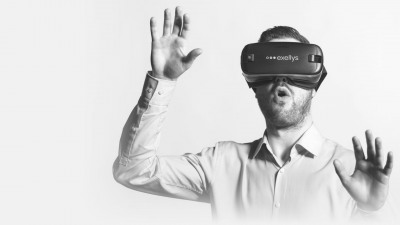 7 video’s to show you what working at Exellys is really like… 20 June 2019
7 video’s to show you what working at Exellys is really like… 20 June 2019Every week we publish another blogpost. But what of instead of telling, we showed you what we’re all about? We browsed through our YouTube channel and selected 7 video’s that give you a quick impression of the life of an Exellyst.
-
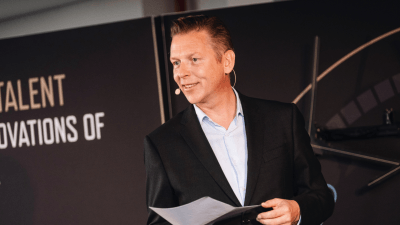 Companies will have to create radical digital sustainability 2 April 2019
Companies will have to create radical digital sustainability 2 April 2019Industry 4.0 is ushering in a new era of exponential change, rapid disruption and regulatory challenges on a scale never seen before. But Raf Seymus, Founder & CEO of Exellys, believes that the future for businesses is extremely bright: “While many jobs will be automated out of existence, many more new jobs will be created,” he predicts.
-
 I believe in the collaboration between man and machine 28 March 2019
I believe in the collaboration between man and machine 28 March 2019Acronyms such as IoT, AI, and ML can make it easy to feel overwhelmed by the challenges presented by Industry 4.0 (i4.0). But according to Veerle Lozie, VP of Operations and IT at Melexis, there’s no need to worry. “The opportunities will be huge for everyone”.
-
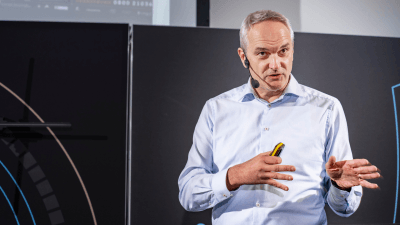 Industry 4.0 is going to change life fundamentally 25 March 2019
Industry 4.0 is going to change life fundamentally 25 March 2019For me Industry 4.0 is about hacking. We can alter genes and create super humans, we can produce new molecules in order to make new materials and we can even squeeze time. It’s no longer science-fiction. The Fourth Industrial Revolution is here and, according to Jurgen Ingels, Serial Entrepreneur & Investor, this is how we should tackle it.
-
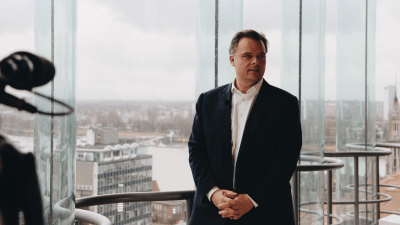 Government can enhance trust in technology 20 March 2019
Government can enhance trust in technology 20 March 2019The technologies driving Industry 4.0 have already started to change the way we live, work and interact with each other. Robotics, infotech, biotech, and nanotech are fundamentally reshaping the way that we live. According to Philippe De Backer, Minister of Digital Agenda, the fact that Industry 4.0 will be driven by technology means that up to two-thirds of people will have to be retrained and reshaped in the next ten to fifteen years.
-
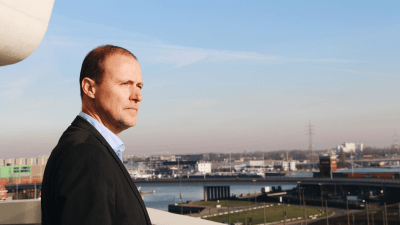 Technology can turn this planet into a garden of Eden 18 March 2019
Technology can turn this planet into a garden of Eden 18 March 2019From autonomous vehicles to digital assistants and self-healing materials, the lines between the biological, physical and digital spheres are being blurred before our eyes. Change is happening at an exponential speed and the emergence of cyber-physical systems shows us that the Fourth Industrial Revolution is already underway. Yet according to Erwin Verstraelen, Chief Digital & Innovation Officer at the Port of Antwerp, many people are unprepared for the challenges that lie ahead.
-
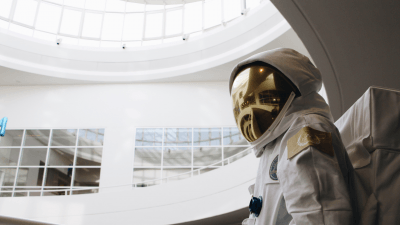 What you need to thrive in Industry 4.0 20 February 2019
What you need to thrive in Industry 4.0 20 February 2019In five years, over one-third of skills that are considered important in today’s workforce will have changed. Innovations such as artificial intelligence, quantum computing, genetic editing and more are no longer science fiction but near future. Companies need to embrace this technological and digital (r)evolution and talent needs to be prepared today in order to tackle the innovations of tomorrow.